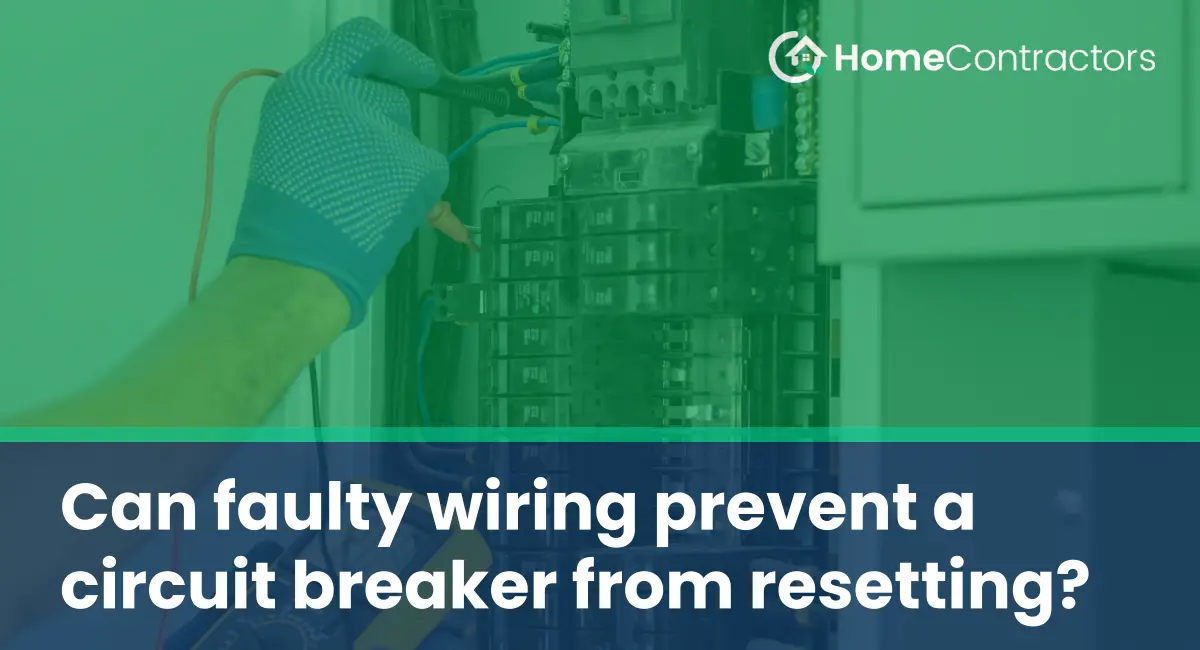A circuit breaker is an essential component in electrical systems as it helps protect against electrical overloads and short circuits. However, in some cases, you may encounter an issue where a circuit breaker refuses to reset even after attempting to push the reset button. One potential cause for this problem could be faulty wiring. In this article, we will explore how faulty wiring can prevent a circuit breaker from resetting and discuss possible solutions.
Understanding Circuit Breakers
Before delving into the topic, it is crucial to understand the basics of how a circuit breaker works. A circuit breaker acts as a safety mechanism by interrupting the flow of electricity in a circuit when an overload or short circuit occurs. It consists of a switch-like device that can be manually reset after tripping. When a circuit breaker trips, it is essentially opening the circuit to prevent damage or fire hazards.
The Role of Wiring in Circuit Breaker Operation
Wiring plays a crucial role in the functioning of a circuit breaker. It connects the circuit breaker to the electrical panel and various electrical devices throughout a building. The wiring should be properly installed and connected to ensure the flow of electricity from the source to the target devices while maintaining safety standards.
How Faulty Wiring Can Prevent Resetting
Faulty wiring can cause a circuit breaker to fail to reset by interrupting the normal flow of electricity. There are a few ways in which faulty wiring can lead to this problem:
- Loose or Damaged Connections: Loose or damaged wiring connections can disrupt the circuit’s integrity. When the breaker is tripped due to a fault, the damaged wiring can cause instability and prevent the breaker from resetting properly.
- Short Circuits: If there is a short circuit in the wiring, it can trip the circuit breaker and prevent it from resetting. Short circuits occur when hot wires come into direct contact with each other or with a neutral wire, causing a sudden surge of electricity.
- Overloads: Faulty wiring may not be able to handle the electrical load it is supposed to carry. This can lead to frequent overloads, causing the circuit breaker to trip frequently. Over time, these repeated overloads can damage the circuit breaker or the wiring, preventing the breaker from resetting.
Identifying and Resolving Faulty Wiring Issues
To determine if faulty wiring is preventing a circuit breaker from resetting, a few steps can be taken:
- Visual inspection: Conduct a visual inspection of the wiring connections in the circuit. Look for loose or damaged connections, exposed wires, or signs of burning or melting.
- Testing the wiring: Use a multimeter or voltage tester to check the continuity and voltage of the wiring. This can help identify any issues such as short circuits or open circuits.
- Seeking professional help: If you are unfamiliar with electrical systems or unable to identify any issues, it is crucial to contact a licensed electrician for further assistance. They have the expertise and tools to diagnose and resolve wiring problems effectively.
Once the cause of the faulty wiring is identified, there are a few potential solutions:
- Repairing or replacing damaged wires: In cases where there are loose or damaged wiring connections, repairing or replacing the affected wires can restore normal functionality. However, it is crucial to ensure that any repairs or replacements are done by a qualified professional to prevent further issues.
- Upgrading the wiring: If the faulty wiring is unable to handle the electrical load, considering an upgrade may be necessary. An electrician can assess the requirements and install new, more suitable wiring to prevent future problems.
Faulty wiring can indeed prevent a circuit breaker from resetting. Loose connections, short circuits, and overloads caused by faulty wiring can disrupt the flow of electricity and interfere with the normal operation of a circuit breaker. Thus, it is essential to regularly inspect and maintain the wiring in your electrical system to ensure proper functionality and safety. Remember, if you encounter any electrical issues or are unsure about handling them, seeking professional assistance is always recommended for your and others’ safety.
